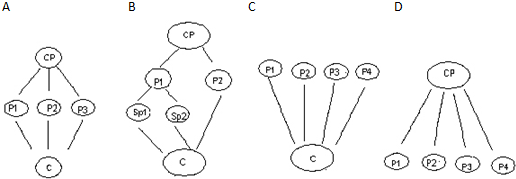题目内容
10.All around the world,more and more people are donating their time to take part in online volunteering projects.What motivates them to help strangers without expectation of money or even thanks?Radha Taralekar helped teach Imelda how to protect herself from HIV,though the two have never met,and neither knows the other's name.From her home Mumbai,the young woman took several weeks to write a guide especially for Imelda-who lost her children to HIV/Aids in Uganda.Taralekar received no payment for the job.Taralekar is one of a number of talented people who regularly donate their time online.But what is driving them to help total strangers,while asking for nothing in return?For Taralekar,the project gave her the chance to use her professional experience."I want to serve people with my medical knowledge,"she says.
For some,the inspiration to volunteer online was far more personal.After losing his wife to cancer,Tony Selman spent many hours online helping Cancer Research to collect data on the disease."Seeing how painful she was when my wife was dying,I determined to help scientists find a cure for cancer,"he says.
Interests and hobbies are also one of the factors.In 2011Sam Luk,a designer,joined other online volunteers to try to help the police solve a murder case.Twelve years earlier the body of Ricky McCormick had been found killed in a field in St Louis,Missouri-the only clues being two encoded (被译成密码的) letters found in his pockets.Unable to decipher (破译) the codes,the police posted them online,calling for volunteers to help them make sense of the messages."I'm interested in patterns and I love Sherlock Holmes,"says Luk.He spent hours every week trying to decrypt the notes,but the case remains unsolved to this day.
For writer Clay Shirky,some large online volunteering projects benefit millions of people,giving him a sense of achievement and generosity.He helps write Wikipedia,the world's biggest encyclopedia (百科全书),which is written entirely by people willing to donate their professional knowledge without any reward.
68.Which of the following is the best title?D
A.What caused Taralekar to help Imelda?
B.What motivates people to help others?
C.Where can we find volunteers online?
D.Why do people help strangers online?
69.We can infer that Radha Taralekar is aA.
A.doctor B.designer C.writer D.policeman
70.Sam Luk volunteered to help the police out ofB.
A.his duty of work B.interests and hobbies
C.money rewards D.a sense of achievement
71.Which of the following shows the structure of the passage?D
CP:Central Point P:Point Sp:Subpoint(次要点) C:Conclusion

分析 文章主要讲的是网上志愿者帮助他人的原因,分别从"充分利用职业经验、个人原因、兴趣爱好及成就感"四个方面分别分析了网上志愿者无偿帮助陌生人的原因.
解答 68. D 考查主旨大意.根据"What motivates them to help strangers without expectation of money or even thanks?"可知本文主要分析了网上志愿者无偿帮助陌生人的原因,故选D项.A项是文中的一个细节,不具有概括性.文章主要讲的是网上志愿者帮助他人的原因,B项外延太大,没有针对"网上".C项无相关信息.
69.A 考查推理判断.根据第二段最后一句中的"I want to serve people with my medical knowledge"可以判断Radha Taralekar是位医生.
70. B 考查细节理解.根据第四段第一、二句"Interests and hobbies are also one of the factors.In 2011 Sam Luk,a designer,joined other online volunteers to try to help the police solve a murder case."可知,Sam Luk试图帮助警察破案是出于兴趣和爱好.
71. D 考查文章结构.第一段是文章的主题段落,短文第一段提出主题:网上志愿者为什么要无偿帮助陌生人.第二段到第五段分别从"充分利用职业经验、个人原因、兴趣爱好及成就感"四个方面分别分析了网上志愿者无偿帮助陌生人的原因.文章是按演绎法,即"先总后分"的思路写的,由此可见文章结构为D项.
点评 做阅读时经常犯错的主要原因是,仅凭读过文章后残留在脑海中的一丝印象来勾选答案,这样便很容易掉入出题人故意设布下的题目陷阱.所谓阅读理解,对于题目的理解一定要忠实于原文,因此,每一道题都应该与原文作全面的对比与核查,再得出答案.也就是说,阅读理解的每一道题目,在原文都应该有明确的出处,我们把这一出处叫做原文相关句,(1)排除与原文相关句主题不一致的选项(2)排除与原文相关句态度相反的选项 (3)排除用于过于极端或负面的选项(4)注意结合文章主旨和主题去排除.

 阅读快车系列答案
阅读快车系列答案Most theories of juvenile delinquency have focused on children from(55)Cfamilies,(56)Bthe fact that children from wealthy homes also commit crimes.The latter may commit crimes for lack of adequate control from parents.All(57)D,however,are uncertain or unimproved and are of course challenged with criticism.
Changes in the social structure may indirectly(58)Ajuvenile crime rates.For example,changes in the economy that(59)Bto fewer job opportunities for youth and rising unemployment(60)Amake gainful employment increasingly difficult to obtain.This results in(61)Bamong youths and may in(62)Clead more youths into criminal behavior.
Families have also experienced(63)Dthese years.More families consist of one parent households or two working parents; (64)Bchildren are likely to have less supervision at home than was common in the traditional family(65)C.This lack of parental supervision is thought to be an influence on juvenile crime rates.Other noticeable(66)Bof offensive acts include(67)Bexperience or failure in school,the(68)Cavailability of drugs and alcohol,and the growing phenomenon of child abuse and child neglect.All these conditions tend to increase the(69)Dof a child committing a criminal act,(70)Ba direct cause and effect relationship has not yet been established.
| 51.A.centering | B.depending | C.figuring | D.concerning |
| 52.A.refer to | B.know about | C.engage in | D.learn of |
| 53.A.punished | B.forgiven | C.forgotten | D.excused |
| 54.A.return | B.contact | C.reference | D.response |
| 55.A.respected | B.cultivated | C.disadvantaged | D.immigrated |
| 56.A.considering | B.ignoring | C.highlighting | D.believing |
| 57.A.values | B.misbehaviors | C.criminals | D.theories |
| 58.A.affect | B.reduce | C.prevent | D.reflect |
| 59.A.point | B.lead | C.come | D.add |
| 60.A.in general | B.on average | C.by contrast | D.at last |
| 61.A.discomfort | B.dissatisfaction | C.dishonesty | D.discrimination |
| 62.A.case | B.short | C.turn | D.return |
| 63.A.failure | B.miseries | C.development | D.changes |
| 64.A.contrarily | B.consequently | C.similarly | D.occasionally |
| 65.A.education | B.concept | C.structure | D.economy |
| 66.A.suggestions | B.causes | C.ideas | D.reports |
| 67.A.smooth | B.favorable | C.unfavorable | D.practical |
| 68.A.increasing | B.restricted | C.reasonable | D.popular |
| 69.A.knowledge | B.aspect | C.strength | D.probability |
| 70.A.since | B.although | C.as | D.because. |